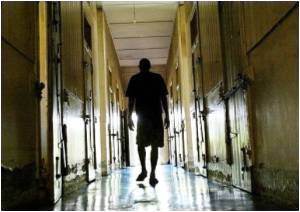
"This can result in increasing weakness, loss of independence and increased use of nursing homes.
"Despite these issues and their impact on the health care system and society, little research has been done to help predict which people with Parkinson's disease are more likely to fall so we can try to prevent these falls."
For the study, 101 people with Parkinson's disease who were able to walk without any aids took a variety of tests evaluating their Parkinson's symptoms, balance and mobility. The participants then reported any falls that occurred over a six-month period.
The participants were mainly in the early stage of the disease, with an average of six years since the disease was diagnosed. The majority of the participants (77 per cent) had the type of Parkinson's that mainly causes difficulty with voluntary movements, while 20 per cent had tremors as the main symptom of the disease.
A total of 48 per cent of the participants had a fall during the study and 24 per cent had more than one fall. A total of 42 per cent reported that they had fallen in the year before the study started.
Advertisement
One test showed that people who fell were more likely to have reduced leg strength than people who did not fall.
Advertisement
"These tests are easy to implement and take only a short time to complete," Kerr said. "Once we can identify those at risk of falling, we can take steps to try to prevent these falls."
In Australia it is estimated that about 70 000 people have Parkinson's disease.
The study was supported by Parkinson's Queensland, QUT and the National Health and Medical Research Council.
Professor Kerr was last month awarded a Queensland International Fellowship to collaborate with Oxford University's functional neurosurgery department on the latest technology for alleviating the symptoms of Parkinson's disease.
He is also working with St Andrew's War Memorial Hospital to develop the technology and new clinical assessments for use in Brisbane.
"Oxford University is the world leader in deep brain stimulation, in which electrodes are implanted in key parts of the brain to send regular electrical impulses and rebalance critical neural networks," Professor Kerr said.
"This will put QUT and St Andrew's at the forefront of this research and lead to new treatment outcomes."
The study results have been published in the American Academy of Neurology's online medical journal Neurology.
Source-Medindia








